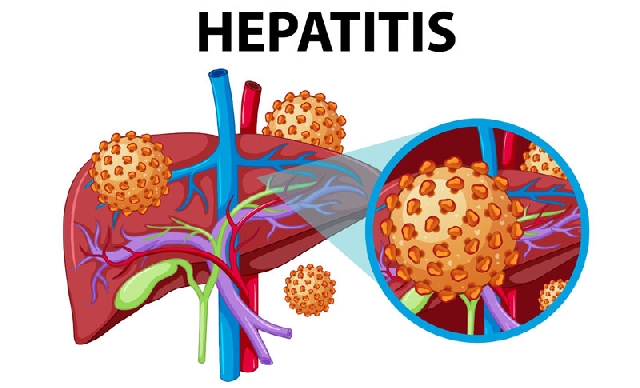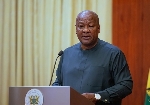Hepatitis poses major public health threat in Ghana – MPs call for action
 Hepatitis B
Hepatitis B
The Minority Leader in Parliament, Alexander Afenyo-Markin, has raised alarm over the growing public health threat of hepatitis in Ghana, calling for urgent national efforts to combat the disease.
Speaking on the floor of Parliament, Afenyo-Markin revealed that an estimated four million Ghanaians may be living with hepatitis unknowingly, making it one of the country’s most pressing silent health crises.
He noted that limited access to healthcare, particularly in rural areas, has left many unaware of their status, putting lives at risk.
“Globally, 304 million people are living with hepatitis, and the disease claims 1.3 million lives each year, mostly due to liver cancer and cirrhosis,” he stated.
He urged the government and stakeholders to intensify public awareness campaigns, reduce stigma around the disease, and improve early detection and treatment, especially in underserved communities.
“We must expand our healthcare infrastructure and strengthen our commitment to routine screening, education, and vaccination.
Only then can we mitigate the devastating impact of hepatitis on our people,” Afenyo-Markin added.
Responding to the Minority Leader’s statement, Dr Grace Ayensu Dankwa echoed the urgency of the situation, stressing that public health education is central to fighting hepatitis B.
She explained that a significant number of people unknowingly carry the virus, and ignorance about its transmission and prevention continues to fuel its spread.
“Educating the public on how hepatitis B is contracted, how to prevent it, and the importance of early testing is the first and most powerful step toward reducing new infections,” she said.
Dr. Dankwa also welcomed the government’s free primary healthcare initiative, noting that its inclusion of the hepatitis B vaccine will be a game-changer in tackling the disease, especially among vulnerable populations.
“The integration of hepatitis B vaccination into the national healthcare package will increase accessibility and protection, particularly for those in remote areas,” she added.
On his part was the Second Minority Chief Whip, who doubles as the MP for Weija Gbawe, Jerry Ahmed Shiab lauded a statement on hepatitis, emphasising the importance of preventive care.
He noted that prevention is better than cure and highlighted the profound impact of the initiative.
The MP referenced the initiative's leader, who personally supported the effort with an initial amount of one million, encouraging others to contribute what they can.
The MP's statement underscores the significance of preventive care in addressing hepatitis and commends the initiative's leader for their commitment to improving healthcare outcomes.
Both leaders emphasised the need for a coordinated national response—combining education, screening, vaccination, and improved access to healthcare—to curb the rising burden of hepatitis in Ghana.
Source: Classfmonline.com
Trending News

U.S., Ghana explore stronger health collaboration
09:00
E/R: Rehabilitation works begin on Koforidua-Suhum road to ease commuters’ plight
09:10
President Mahama explores education and biotechnology partnerships in Singapore
06:39
Ghana poised to become Africa’s digital trade hub – Vice President
16:39
Don’t be intimidated by the presence of police; they're here to provide security – NYA CEO to Akwatia voters
08:50
NDC’s Godwin Tameklo questions the use of Internally Generated Funds at Ridge Hospital
08:56
Hassan Tampuli supports 238 tertiary students in Gushegu
06:13
Volta Region launches National Apprenticeship Programme with 2,060 beneficiaries
13:51
E/R: Vigil held in honour of late Ernest Yaw Kumi
10:45
Razak Kojo Opoku urges NPP to resist ‘entrenchment theorists’
07:31



